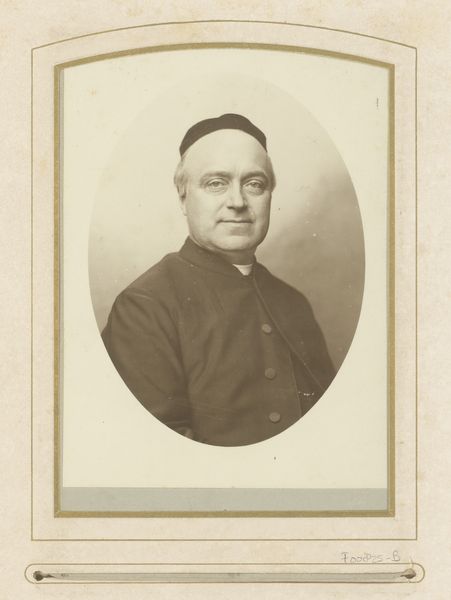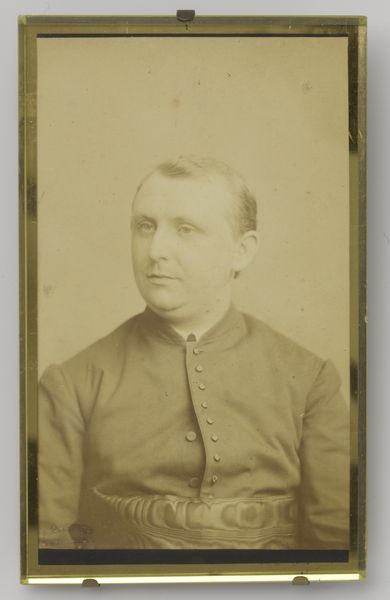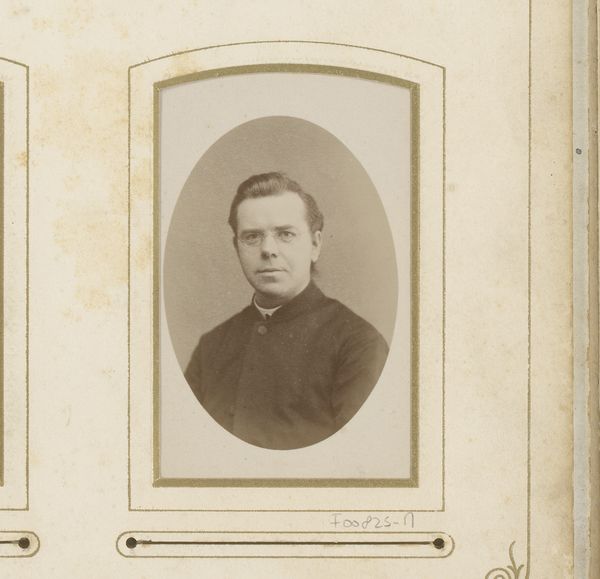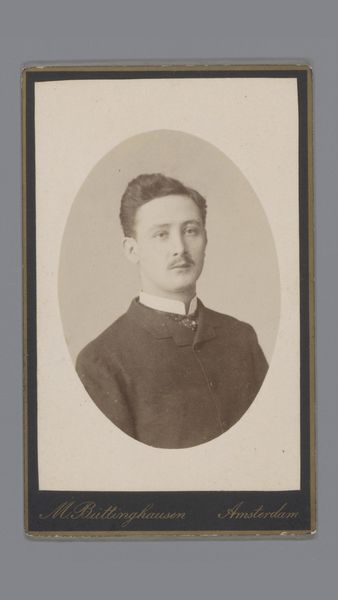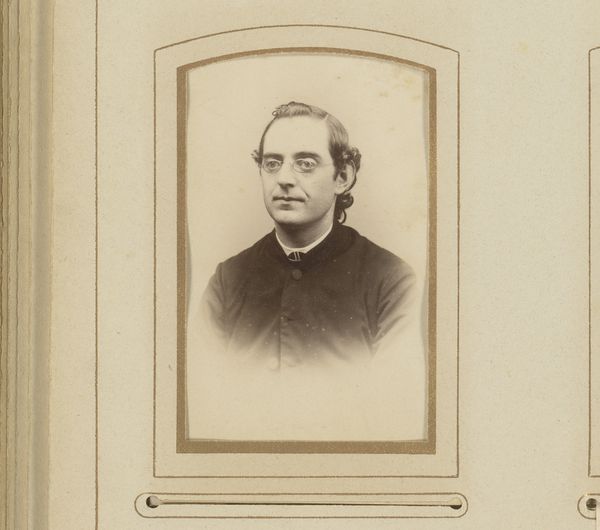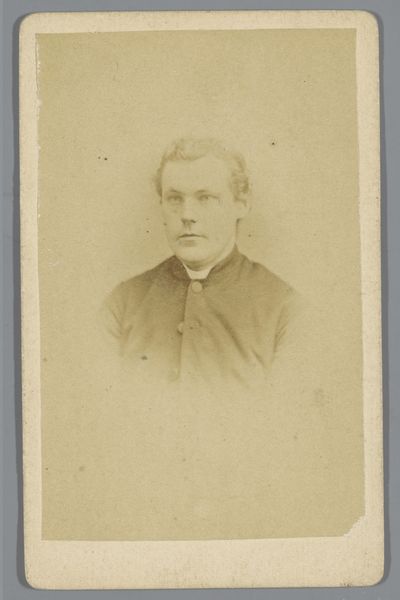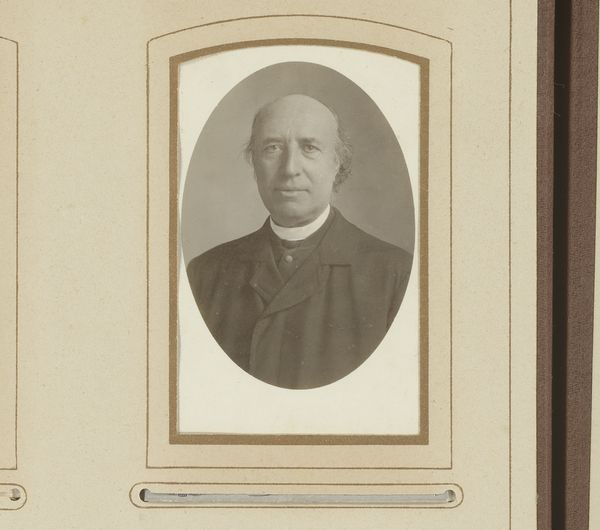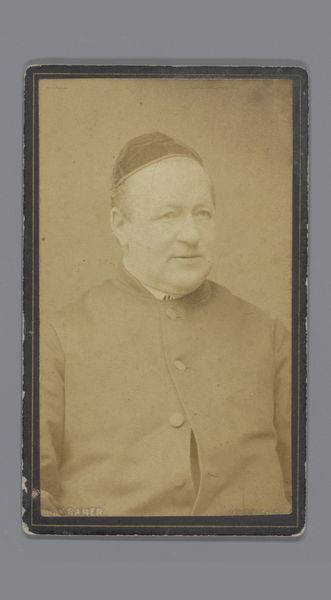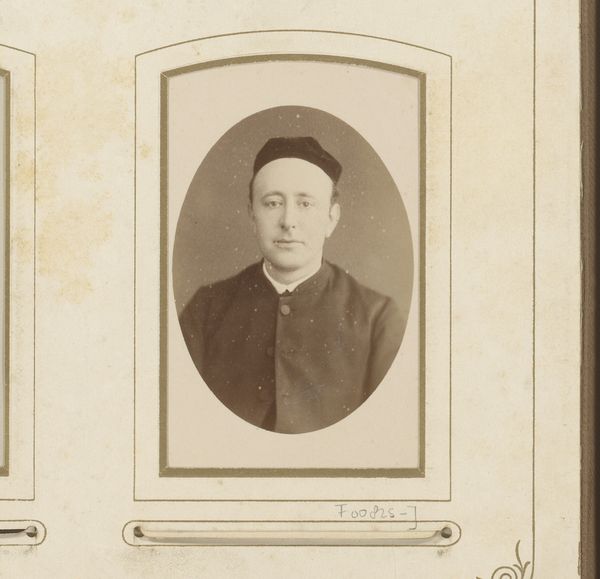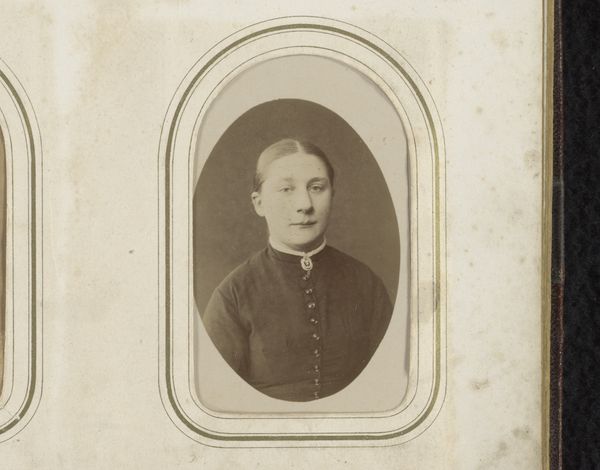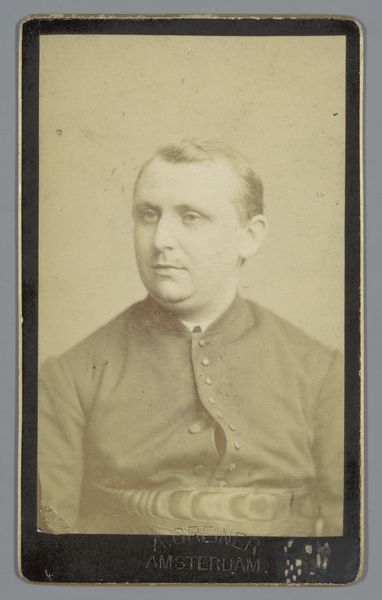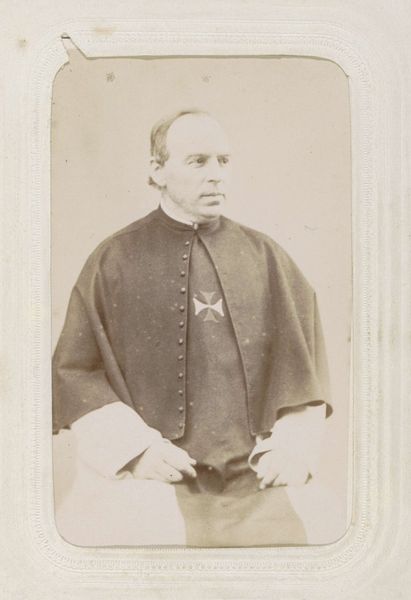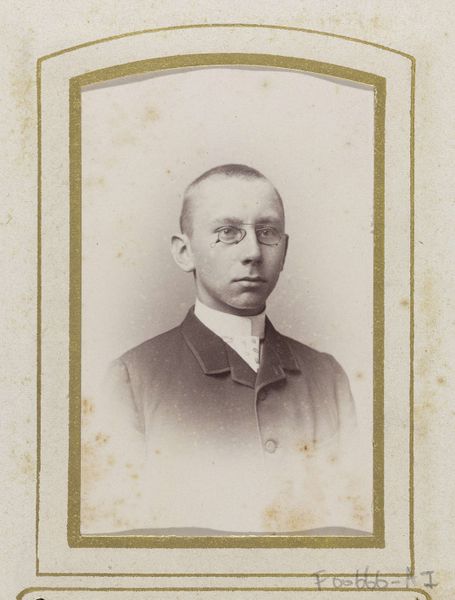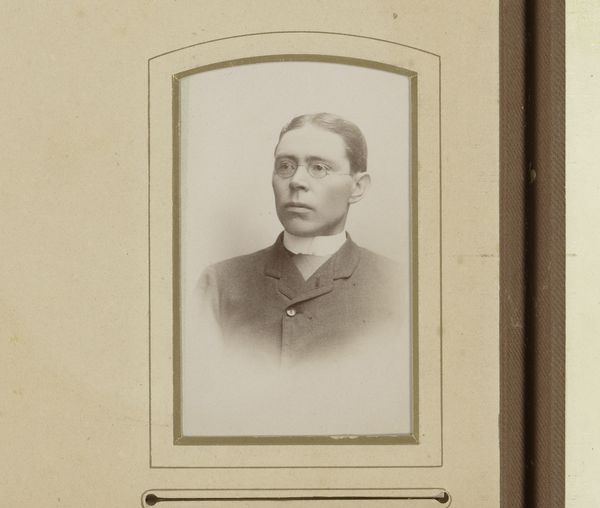
photography, gelatin-silver-print
#
portrait
#
vintage
#
self-portrait
#
photography
#
historical photography
#
historical fashion
#
gelatin-silver-print
#
19th century
Dimensions: height 103 mm, width 64 mm
Copyright: Rijks Museum: Open Domain
This photographic portrait of an unknown priest was produced by Willem Gerhardus Kuijer in Amsterdam. The albumen print, a process refined in the 1850s, involves coating paper with egg white and silver nitrate, making it light-sensitive, before placing the negative on top and exposing it to light. Photography, in its moment of invention, was seen as a craft like any other. A collodion positive print like this one involved a whole host of skills: mixing chemicals, preparing glass plates, careful timing of exposures, and hand-application of varnish to protect the delicate image. The final result gives us not only a glimpse into the sitter’s likeness, but also into the industrialized processes of image-making in the 19th century. It reminds us that photography emerged from the same impulse as other industrial processes: the efficient production of goods for a burgeoning market. Thinking about this history emphasizes the skill and labor involved, and challenges the separation between art and craft.
Comments
No comments
Be the first to comment and join the conversation on the ultimate creative platform.
